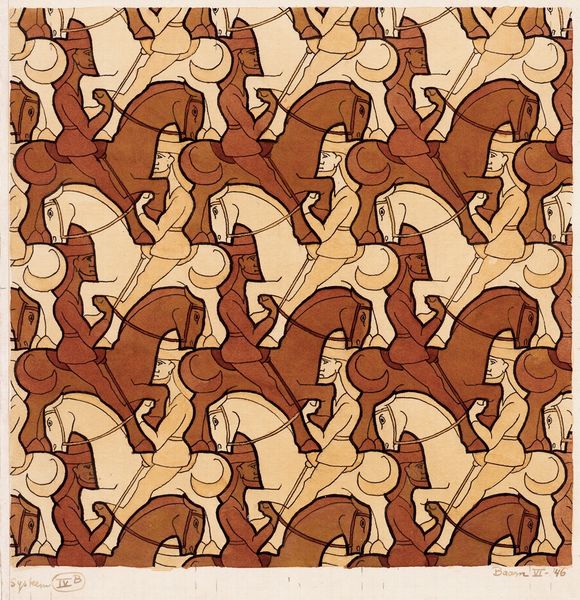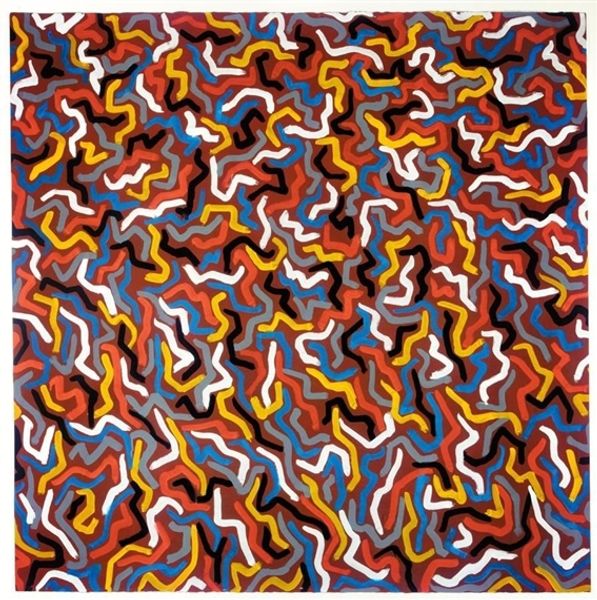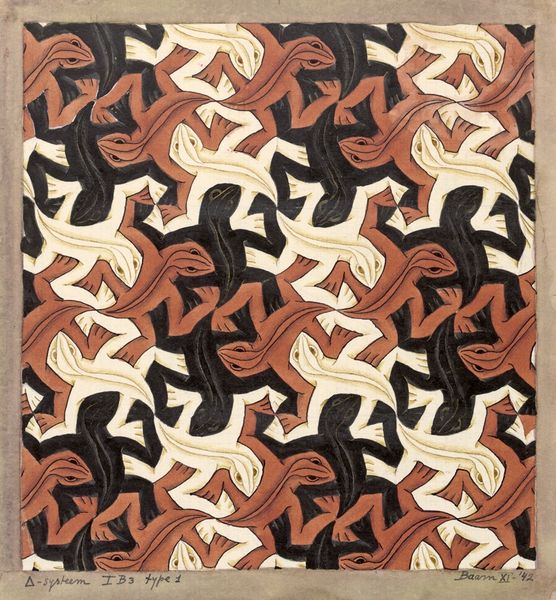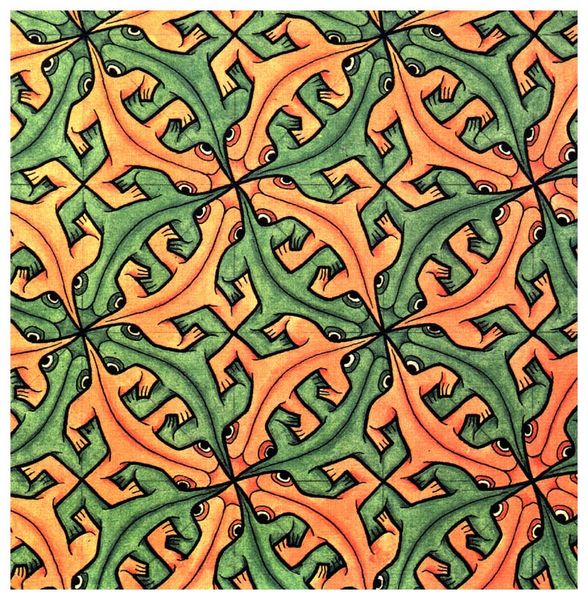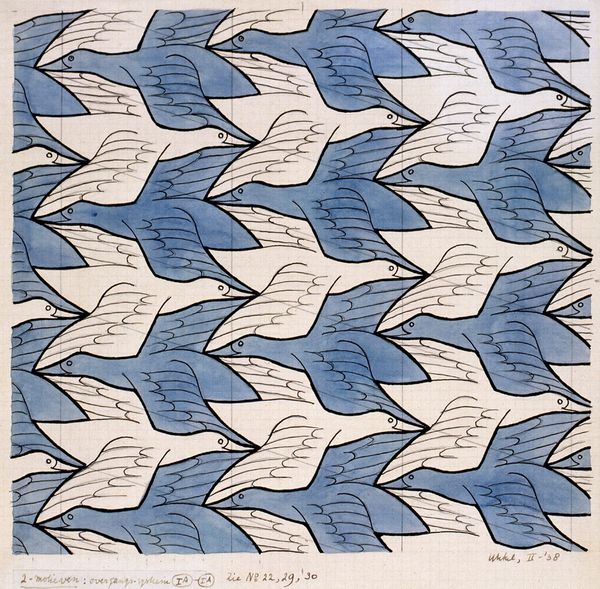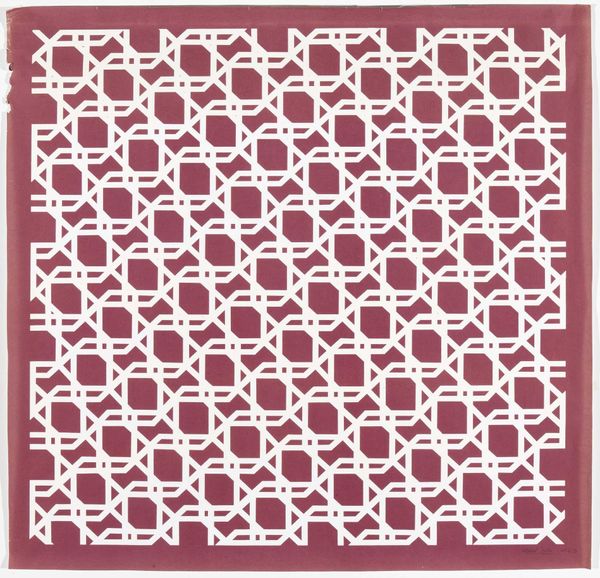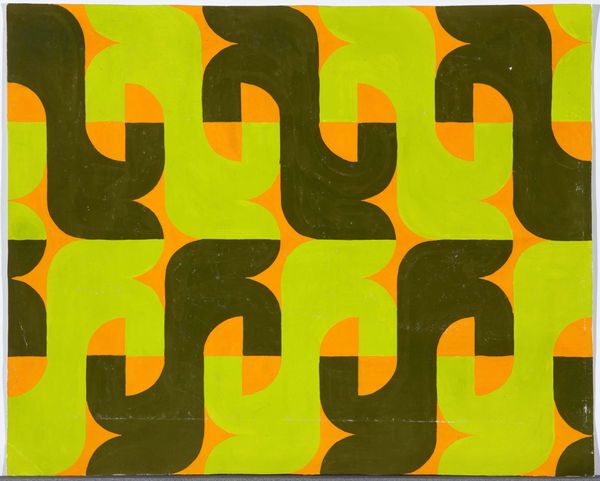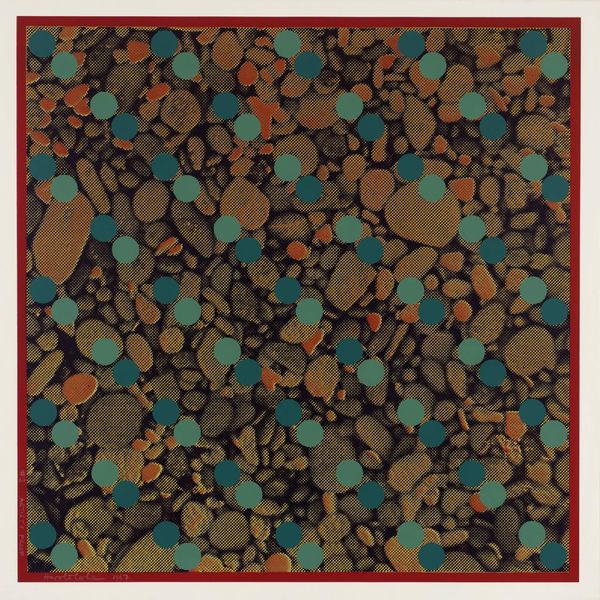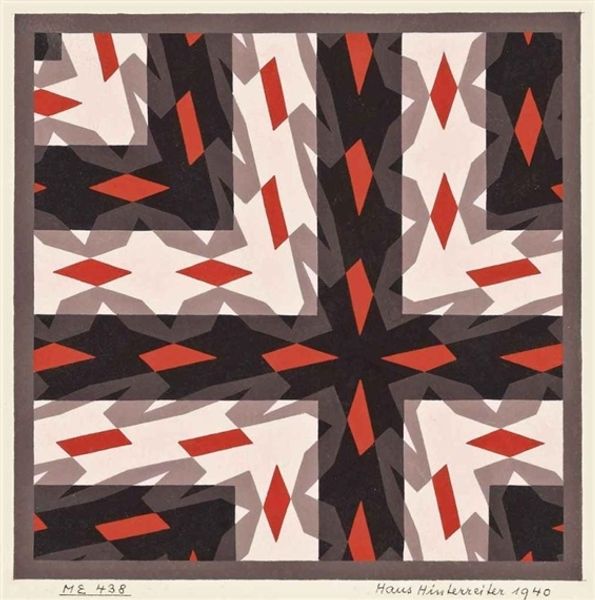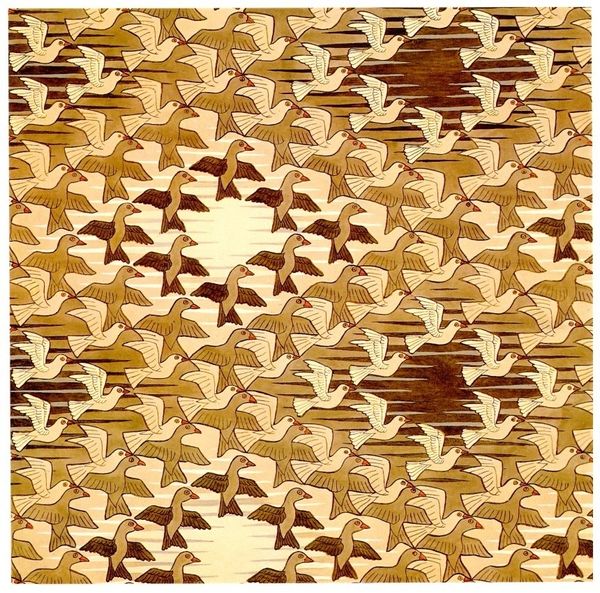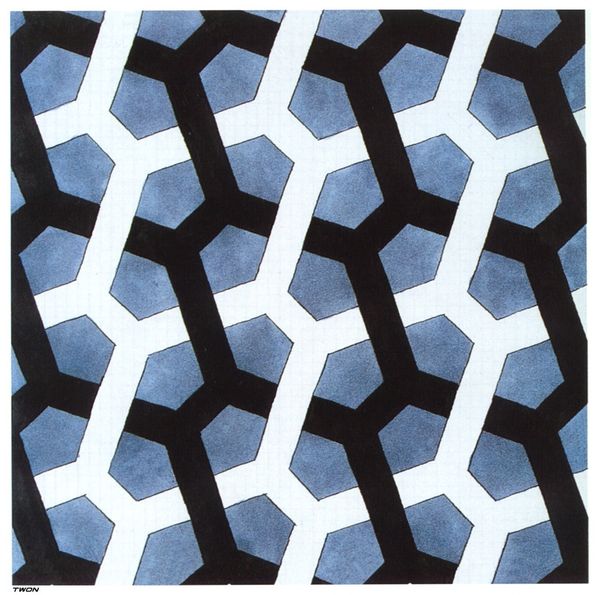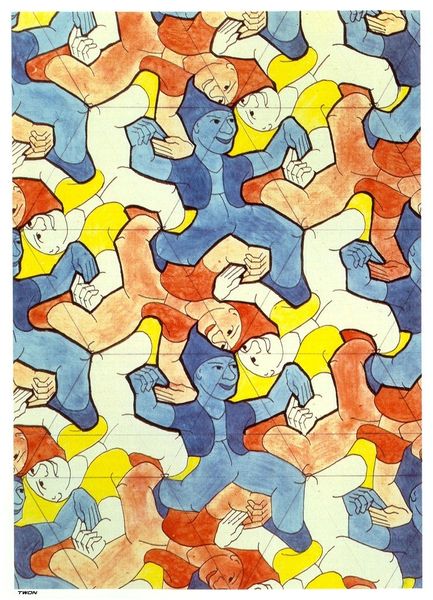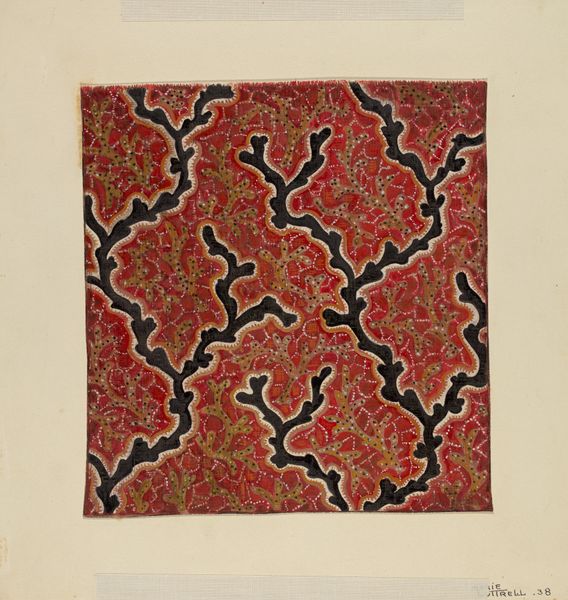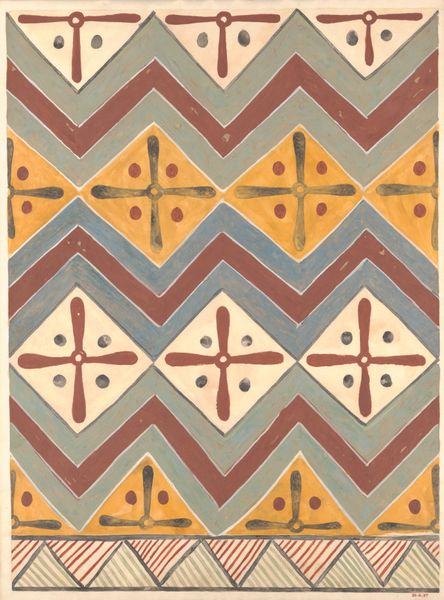
Copyright: M.C. Escher,Fair Use
M.C. Escher created this tessellated woodcut of Pegasus, the winged divine stallion, sometime in the 20th century. Pegasus, born from the blood of Medusa, has carried profound symbolic weight since ancient Greece. Often depicted alongside gods and heroes, it embodies divine inspiration and the soaring spirit of intellect. In this image, Escher reduces the figure to an aesthetic pattern. The earliest appearances of winged horses go back to Mesopotamian art. We see them again in Renaissance tapestries and even modern logos. These images tap into a universal yearning for transcendence. They embody the human spirit's endless journey toward understanding and enlightenment. The rhythmic repetition evokes a dreamscape where reason bends, and the mythical becomes tangible, reminding us that symbols are not static but cyclical. They resurface, evolve, and take on new meanings in different historical contexts, forever shaping our collective imagination.
Comments
No comments
Be the first to comment and join the conversation on the ultimate creative platform.
